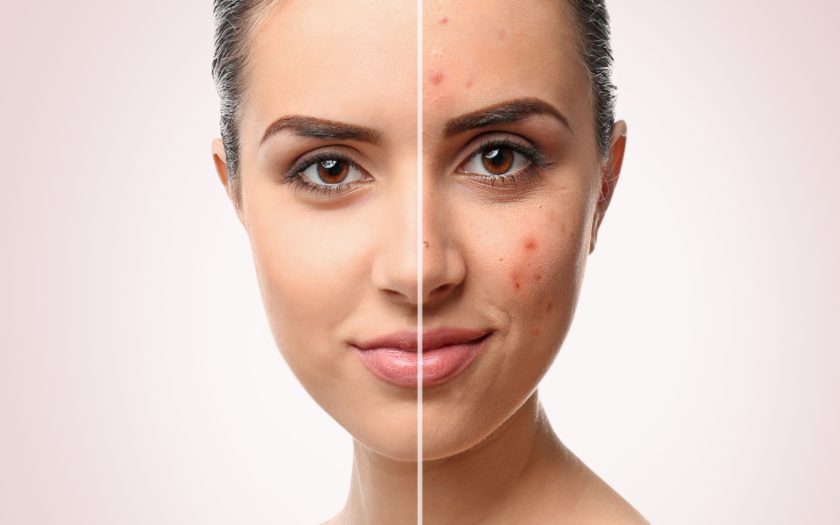Using scrubs.
Scrub particles can damage the surface of pimples, which may lead to new breakouts. Additionally, scrubs designed for the body should not be used on the face. Since these products are designed to improve lymphatic flow in the deepest layers of the skin and to prevent stretch marks, fat deposits and cellulite. Using a scrub on acne-prone skin should only be done after consulting with a dermatologist.
Frequent cleansing throughout the day.
For proper care of problematic skin, cleansing should be done twice a day. Special attention should be given to evening cleansing, as dirt accumulates during the day, worsening the skin’s condition. It is not recommended using products containing alcohol for cleansing, as alcohol dissolves lipids (fats) that are parted of the skin’s protective barrier.
Excessive use of anti-inflammatory masks, toners and oil-control products.
These products can be used, but only according to a specialist’s recommendations. Since excessive use of these products can lead to dry skin and sebum production will increase significantly. This compensatory mechanism will work to counteract the dryness, potentially causing new inflammatory elements to appear.
Inadequate skin hydration.
Even if you have oily skin, it still needs hydration. However, it’s important to choose the right texture of skincare products; for example, non-concentrated tea tree oil solutions would be more suitable for acne-prone skin. Many people believe that less frequent moisturizing results in fewer breakouts, which is fundamentally incorrect. Insufficient hydration causes the epidermis to lose elasticity and become less firm. As we age, the layer of subcutaneous fat thins, making it harder to retain moisture. A lack of water in cells and tissues will cause the epidermis to become dry and more sensitive to external factors.
Incorrectly selected decorative cosmetics.
For problematic skin, choose products designed for oily skin and skin with acne. If your skin is prone to inflammation, your foundation should be non-comedogenic, meaning it should not clog pores or trigger new breakouts. Some pharmacy brands offer products that not only conceal acne but also help reduces inflammation thanks to specific ingredients like salicylic acid. Additionally, remember to regularly clean or replace brushes and sponges, as they accumulate skin oil, dust, and makeup residue. If you notice that your makeup exacerbates inflammation, it’s better to switch to products that won’t cause further irritation.
In cases of frequent inflammatory outbreaks on the face, it is advisable to seek medical help. After an initial consultation, the specialist may recommend seeing a gastroenterologist, gynecologist or endocrinologist. Once a diagnosis is made, the doctor will prescribe ointments, gels (for example A-Ret Gel) and creams (for example Aziderm) with active ingredients. Mild stages of the condition are treated with topical agents aimed at preventing active inflammation and bacterial growth. The specialist will also definitely recommend suitable products for cleansing and moisturizing your skin.

